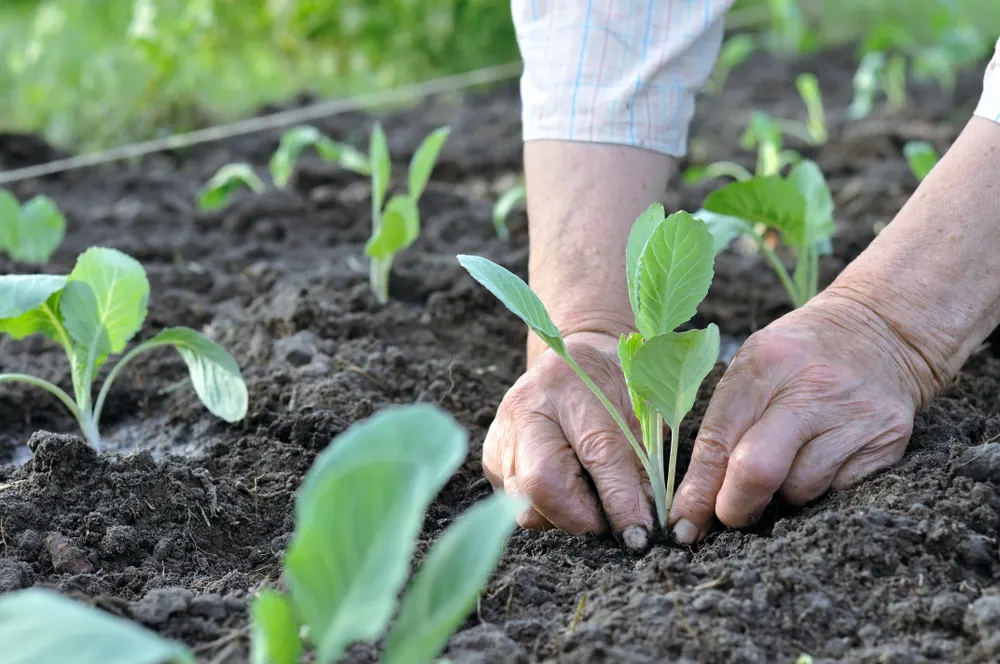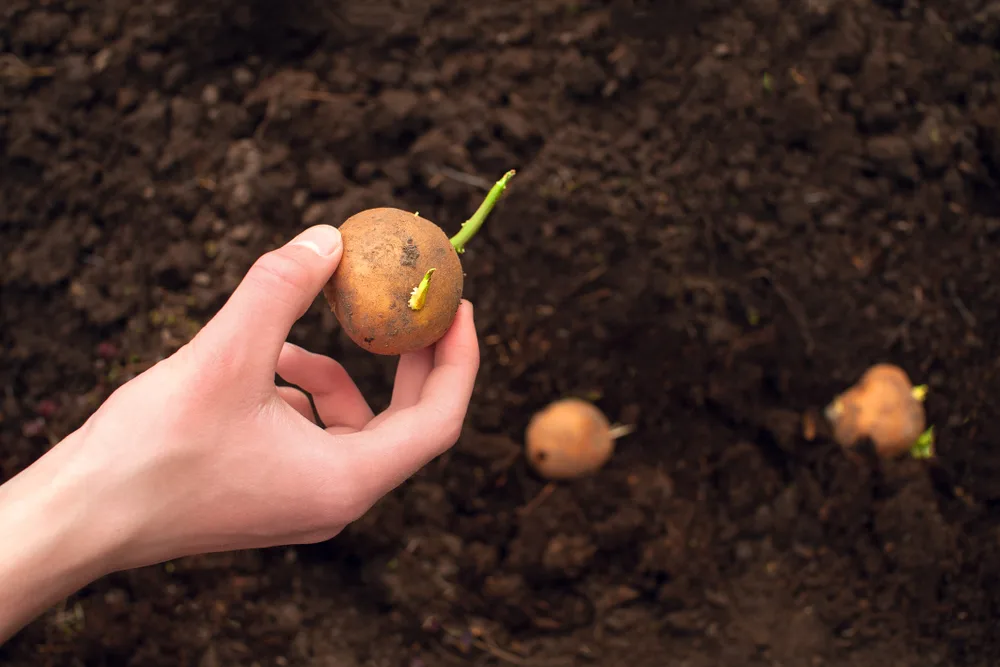Tomatoes are a great addition to any garden. They’re relatively easy to grow, making them perfect for beginners while still providing a challenge for seasoned gardeners.
With proper care, they produce delicious fruit perfect for sandwiches and pasta dishes.
Before enjoying your tomato harvest, you need to grow healthy plants. The right companion plants can enrich the soil and help manage pests and diseases.
However, some plants can hinder your tomatoes’ growth. Here’s a list of plants to avoid planting near your tomatoes.
Companion Plants To Avoid Growing Near Tomatoes
1. Cabbage

Cabbage, a brassica family member, competes with tomatoes for the same nutrients. This competition can stunt tomato growth, resulting in fewer buds and no fruit.
2. Corn
Corn and tomatoes attract similar pests and fungal infections. Moth larvae feed on both, making them doubly attractive to pests when planted together, which can ruin your harvest.
3. Broccoli
Broccoli, another brassica, also competes for nutrients with tomatoes. Both plants are heavy feeders, so it’s best to plant them separately for better growth.
4. Fennel
Fennel can inhibit tomato growth. It’s generally not a good companion for most garden vegetables and should be grown alone in a separate patch or pot.
5. Dill
Young dill can repel aphids and help tomatoes. However, mature dill can damage tomato roots and stunt growth, so it’s best to keep them apart once dill matures.
6. Potatoes

Both tomatoes and potatoes belong to the nightshade family and need the same nutrients. They also share similar diseases and pests, which can spread and ruin both plants if grown together.
7. Eggplant
Eggplant, also a nightshade, competes with tomatoes for nutrients. It is prone to blight, a fungal disease that can quickly spread to nearby tomatoes, making them vulnerable.
8. Walnuts
Walnut trees release chemicals into the soil that can stunt the growth of tomatoes. As the walnut tree’s roots grow, they can reach and harm your tomato plants.
9. Cauliflower
Another brassica, cauliflower, competes heavily for soil nutrients with tomatoes. Planting them together can result in smaller, less healthy plants.
Keep these plants away from your tomatoes to ensure a bountiful harvest.
